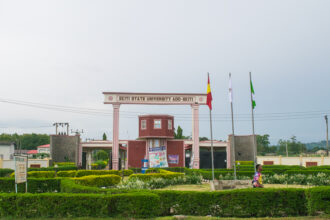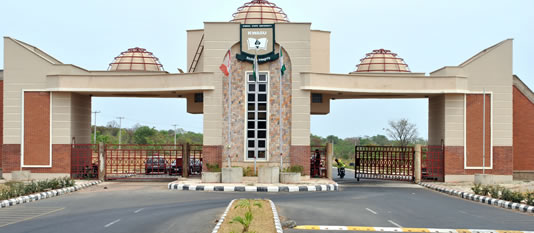The House of Representatives on Tuesday unveiled plans to investigate the administration of public revenues and expenditures of the West African Examination Council (WAEC) from 2018 to 2023.
The resolution was passed following the adoption of a motion sponsored by Hon. Amobi Ogah, who emphasized the need to ensure the judicious use of public funds appropriated to WAEC, which is fully funded from the Federation Account.
In his lead debate, Hon. Ogah highlighted that the House is empowered by Section 80(4) of the 1999 Constitution (as amended), which stipulates that “no monies shall be withdrawn from the Consolidated Revenue Fund or any other public fund of the Federation, except in the manner prescribed by the National Assembly.” Consequently, all funds received as examination fees from candidates for registration are considered public funds.
ALSO READ:Reps call for revocation, re-award of flooded East-West road contract
“The House observed that the Council, in addition to its statutory allocation, obtained a credit facility of N5 billion from First Bank Limited in 2022. Although the credit facility was repaid within the same year, there was no full disclosure of the loan’s purpose in its financial statement.
“The House is cognizant that by virtue of Section 81(c) of the 1999 Constitution, for the purpose of any investigation, the Senate, House of Representatives, or a Committee appointed shall have the power to summon any person in Nigeria to give evidence at any place or produce any document or other thing in his possession or under his control.
“The House is worried that as of January 12, 2019, WAEC had an investment of 2,974,510,000 units of shares worth N1,45,000,000 in Megatons W.A. Limited, a company engaged in printing security and confidential documents. An additional investment of N32,255,000 was made in the same year, bringing the total value of the investment to N1,487,255,000 as of December 31, 2019.
“However, the company suddenly went into liquidation, and provisions were made for impairment of the investment in line with International Financial Reporting Standards (IFRS 9).
“The House is aware that N899,375,000 provisions for impairment were made on the total investment, representing 60% of the total investment. This is a huge loss that raises questions as to why a proper investment decision was not made initially.
“The House is also aware that WAEC’s proposed expenditure for the year 2024 is N42.9 billion, whereas its internally generated revenue (IGR) projection is N32 billion.
“The House recognizes the need for the National Assembly to thoroughly appropriate WAEC’s significant IGR, scrutinize the Council’s past financial statements, and debt collection from State Governments to avoid further wastage of public funds and ensure accountability and prudent stewardship.”
To this end, the House mandated its Committee on Basic Education Examination Bodies to ensure that the West African Examination Council subjects its year 2024 IGR for appropriation and approval.
The House also mandated its Committee on Basic Examination Bodies to investigate the annual IGR collected by the West African Examination Council from 2018 to 2024 and examine the financial books/records and financial statements of the Council from 2018 to 2023 to ascertain compliance with existing laws governing the administration of public funds and report within four weeks for further legislative action.








